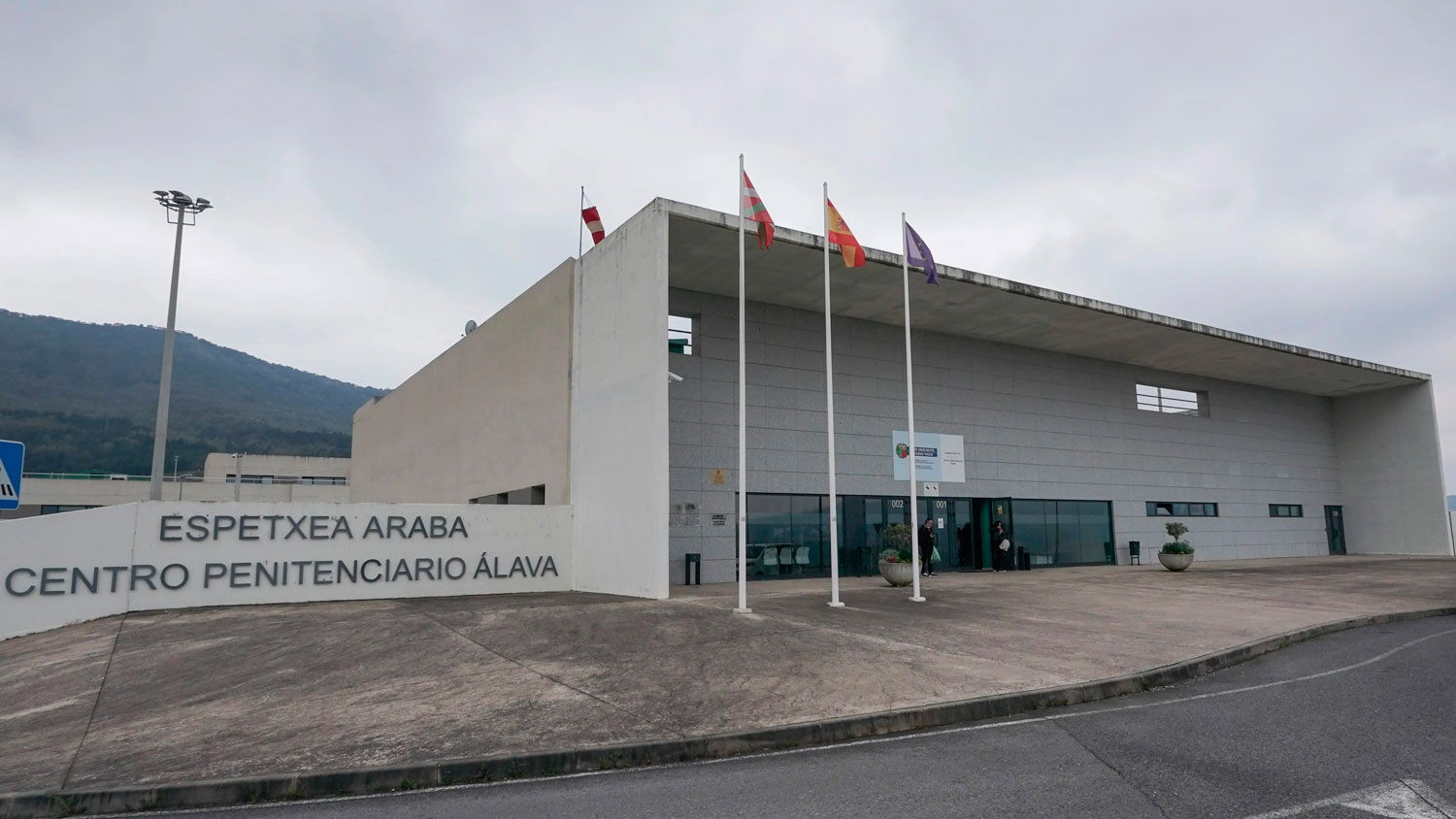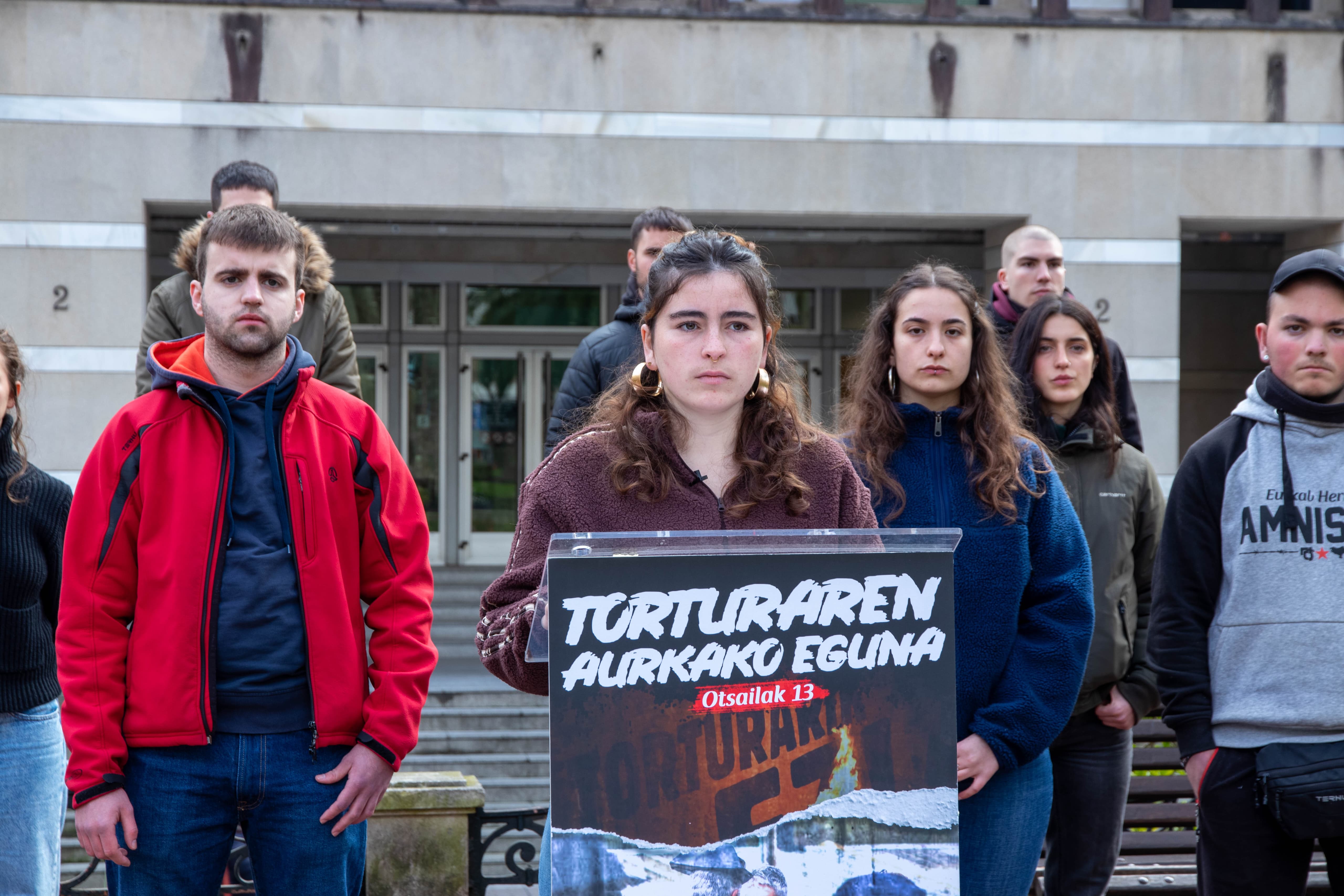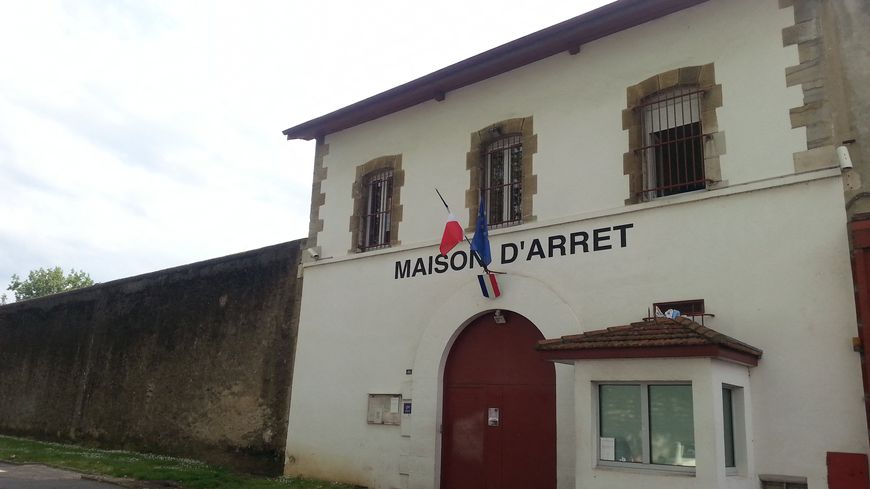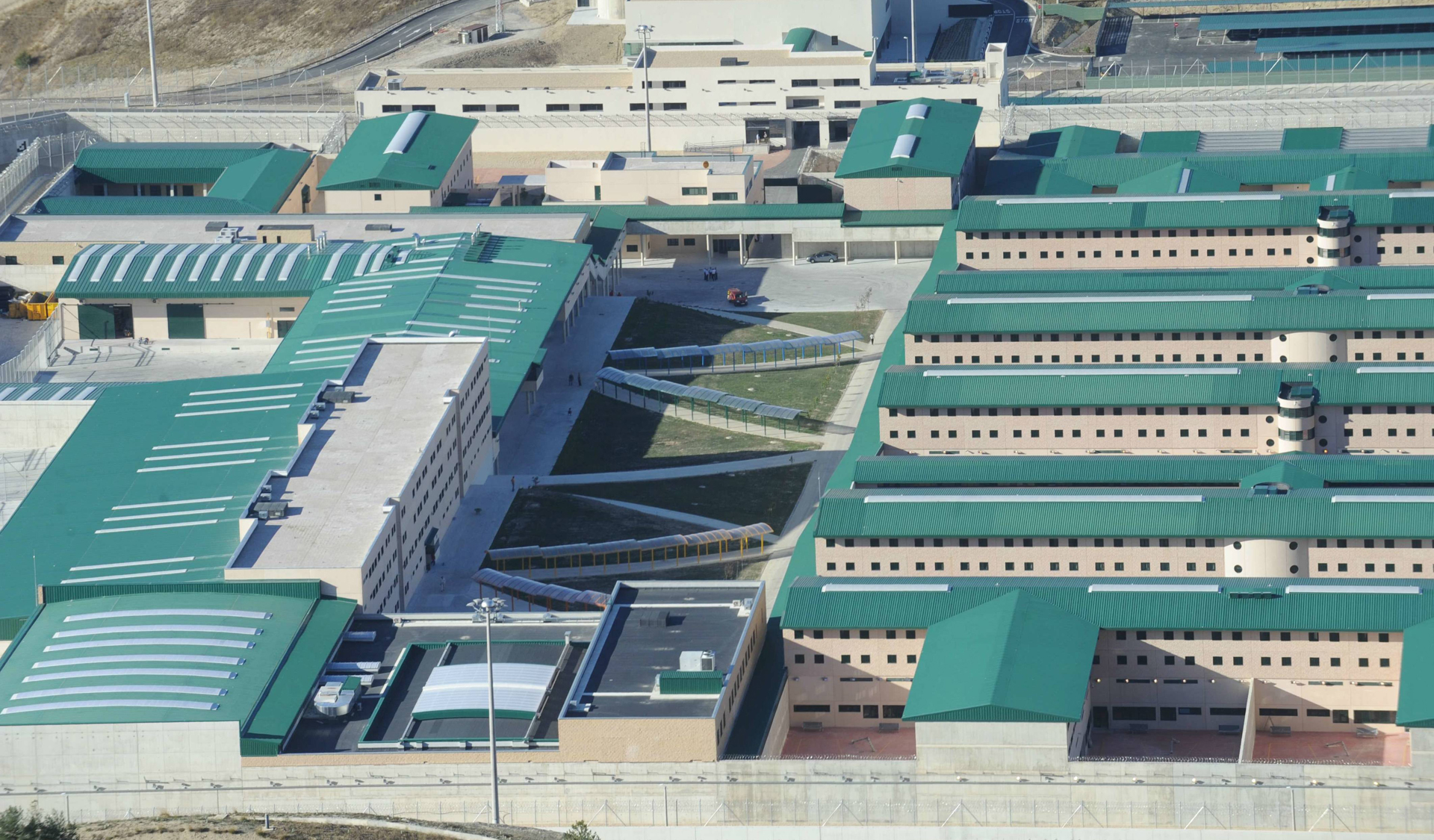"If we've been treated like this, what they're not going to do inside the jail."
- Last week 26-year-old Irunés Oroitz Herrero was found dead in his cell in Zaballa prison in Álava. According to the Basque Government it was a “natural death”. However, the young man's relatives have pointed out to ARGIA that Herrero has not been given adequate medical care even though he requested it, and although he suffered from heart disease, he was taking medication without the necessary control. Once Herrero died, the prison and the Government also denounce their treatment of the family.
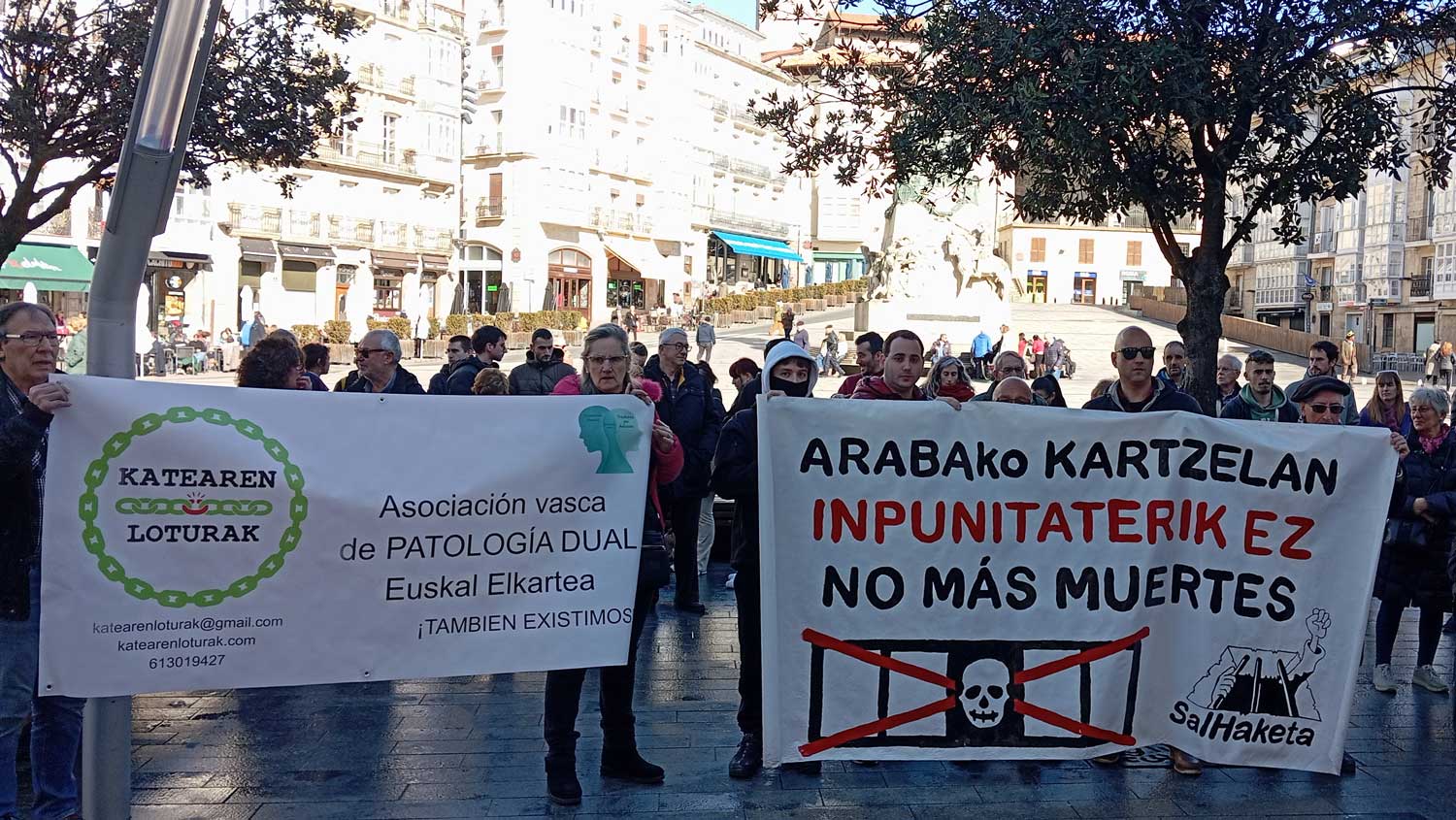
The Alavesa Salhaketa association convenes a rally to report the death on Tuesday at noon in the Plaza de la Virgen de Vitoria. The Association recalls that two years ago the Basque Government assumed prison jurisdiction and that Herrero is the fourth person to die in prison: three in Zaballa and one in Martutene in Donostia. In the concentration have been the relatives of the prisoner of Irun, where they have spoken with ARGIA.
Brother Garikoitz, in Oroitz, has had tears containment works to explain what he has lived since death. "We almost know nothing," he repeated several times, a week after his brother's death. On Tuesday, February 6, Garikoitz received a call from the prison and received little data. “That in the morning he did not rise, that he went to seek him and that the body was dead but still hot.” At the end of a week, from the very beginning, he talks about the treatment he is receiving from prison and from the government.
"If I came to the vet to pick up the cat's dead body, I would treat myself better."
“We have always had to be behind them, without explanations, to speak everything safe and such comments,” he explains. The first two days did not know where the body was, “it was chaos.” The body was taken to an autopsy before being seen by the families. “When they finished they didn’t tell us that we could take the body, we knew when we called.” This was two days after death, “if we call four days I would be there,” his brother says.
Another relative, who prefers not to sign up, gets angry. He came to jail with other relatives to collect the properties of Oroitzen. An official gave them everything in a bag. “’Tori’. There's no explanation, there's no 'sorry', no one came up in jail's name to ask how we were. How is that possible? If I came to the vet to pick up the cat's dead body, I would be better treated." He states that the prison world is unknown to him, but the experiences of these days awaken his reflection: “If we have been treated like this, what they will not do inside the jail.”
They tell the family that they will be given the result of the autopsy “perhaps” within a month. “We don’t yet know anything, to wait and wait, they’re all excuses,” his brother says. Meanwhile, “we have no death certificate.” In spite of the obstacles, Oroitz's body was finally taken to Irun, where he was dismissed as a family. “We’re wrong, we don’t know how we are.”
Uncontrolled medicalized
Brother Garikoitz and his family also talk about his state of health in memory and his attention in prison. When Oroe had heart problems, his family explains that he had heart surgery when he was a child and waited for a surgeon to talk about a fistula. To this must be added the apneas. Before he was in Zaballa he was in Martutene, and his relative says that one night he was about to die from apnea. “Less bad than the cellmate realized, but spent three days in a coma.”
With this profile, they both claim that jail gave him plenty of medications: they greatly increased the dose of methadone he took voluntarily to ease the pain of a fistula, as well as anxiolytics and antidepressants. “Sleep, wake up... A cocktail,” says Garikoitz, who recently gave him increasingly strong medicines.
"If you haven't considered apnea or heart problems and given pills to a child like treats, you'll have some responsibility."
The family denounces that Oroe had been calling for time with the doctor for the pains, but that instead of giving it, the doses of the medications were increased, and Oroitz complained about it. "If you haven't considered apnea or heart problems and given pills to a child like goodies, you'll have some responsibility," he says. Through the families of the prisoners come prisoners who believe that they killed an arrhythmia by pills, but they don't know. The same has denounced his family: “If they don’t give you any explanation, start spinning and turning in the head.”
At worst
In the past, Oroe had mental health and drug use problems. “What does a person with such problems do in jail?” says his family member. In any case, the family says that in recent months it was “very good”. On the Sunday before death his friends visited him, “they told us they saw him very well from an anonymous point of view, that everything he said made sense,” explains his brother. Apparently, the evolution into the eyes of the prison was good, as Oroe had his first scheduled departure the same day that his family made statements to ARGIA. “We had a lot of hope,” my brother says, unable to assimilate what had happened.
“Saihestu egingo dira giza eskubideen, ordenamendu juridikoaren eta espetxeetako tratamendu psikosozialaren aurkako balioak eta jarrerak babestea, justifikatzea eta goratzea ekar dezaketen adierazpenak”, dio, besteak beste, agiriak. Azaroan Eusko Jaurlaritzako... [+]
34 edo 35 urteko gizonezkoa, gasteiztarra eta alaba baten aita, ostegunetik ostiraleko gauean hil zen, Salhaketak jakinarazi duenez. Elkarteak gogoratu du Jaurlaritzak espetxe eskumena hartu zuenetik hiltzen den bederatzigarren presoa dela, eta egiturazko aldaketak eskatu ditu... [+]
Alarma jo du, beste urte batez, OIP Presondegien Nazioarteko Behatokiak. Abenduaren lehenean marka berri bat hautsi zen frantses estatuan, 80.792 pertsona atxiloturekin. Espetxe-administrazioaren aitzinikuspenen arabera, gainera, 86.000 baino gehiago izan litezke 2027an egungo... [+]









